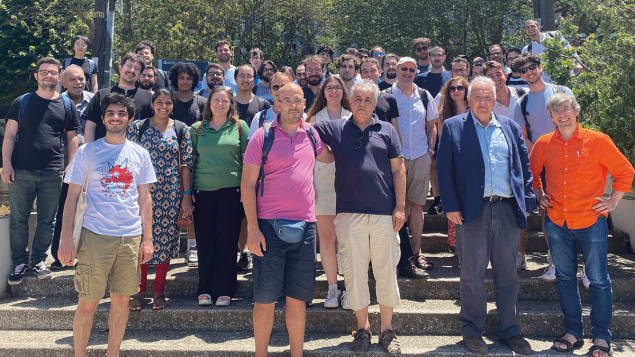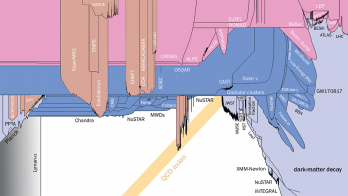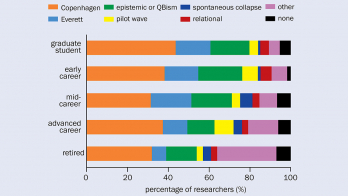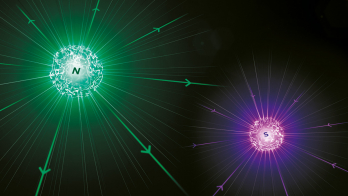
The Southeastern European Network in Mathematical and Theoretical Physics (SEENET-MTP) has organised scientific training and research activities since its foundation in Vrnjačka Banja in 2003. Its PhD programme started in 2014, with substantial support from CERN.
The Thessaloniki School on Field Theory and Applications in HEP was the first school in the third cycle of the programme. Fifty-four students from 16 countries were joined by a number of online participants in a programme of lectures and tutorials.
We are now approaching 110 years since the general theory of relativity was founded and the theoretical prediction of the existence of black holes. There is subsequently at least half a century of developments related to the quantum aspects of black holes. At the Thessaloniki School, Tarek Anous (Queen Mary) delivered a pivotal series of lectures on the thermal properties of black holes, entanglement and the information paradox, which continues to be unresolved.
Nikolay Bobev (KU Leuven) summarised the ideas behind holography; Daniel Grumiller (TU Vienna) addressed the application of the holographic principle in flat spacetimes, including Carrollian/celestial holography; Slava Rychkov (Paris-Saclay) gave an introduction to conformal field theory in various dimensions; while Vassilis Spanos (NKU Athens) provided an introduction to modern cosmology. The programme was completed by Kostas Skenderis (Southampton), who addressed renormalisation in conformal field theory, anti-de Sitter and de Sitter spacetimes.







